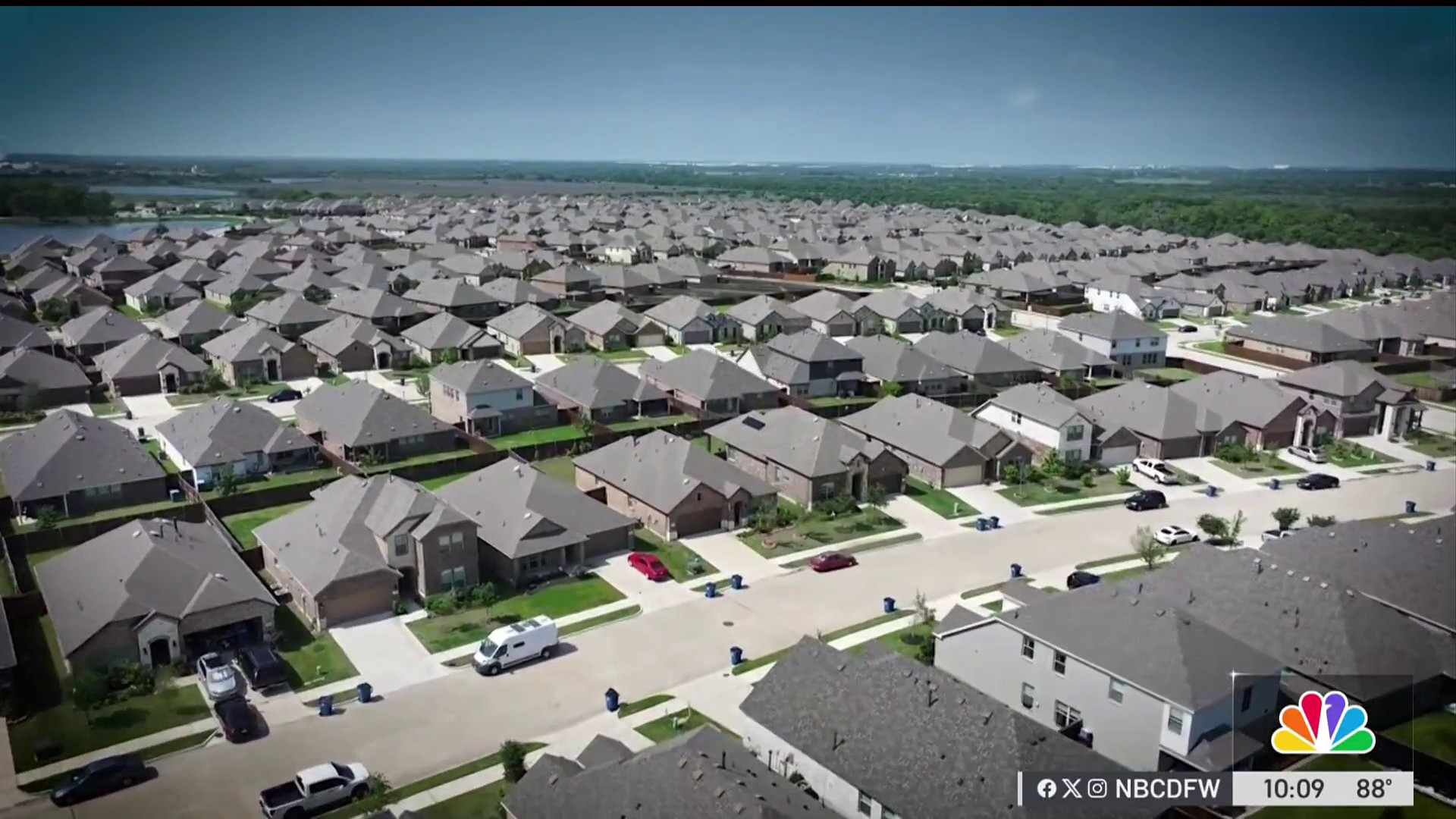You may have seen offers to bundle your home and auto insurance for a discount. It’s typically optional for customers. A North Texas homeowner tells NBC 5 Responds her insurance company told her she would have to bundle to keep the current policy on her house.
Read on for what this may mean for consumers who are already facing soaring rates.
'THIS IS STRONG-ARMING'
Sally Little of Azle shared a letter with NBC 5 Responds from her insurance company. In it, the company writes it would not renew her homeowner's policy when it expired unless Little added a personal auto policy too. Little said another insurance company covers her vehicles because, in her case, bundling wasn’t a better deal.
Get top local stories in DFW delivered to you every morning. >Sign up for NBC DFW's News Headlines newsletter.
“That’s what struck me, that’s what really dinged me into saying this is strong-arming,” Little said. “Almost trying to hold me hostage into staying with this particular company.”
Little wasn’t alone.
So far this year, the Texas Department of Insurance said it received 37 complaints about insurance requiring consumers to bundle in order to renew a home policy. According to the TDI, all the complaints were from Farmers' policyholders.
In October 2023, Farmers Insurance Exchange filed new underwriting guideline rules for state review. The review is still pending. In Texas, insurers can request and implement a change before regulators formally approve them.
We weren’t able to read the full filing. Farmers marked it confidential because the document may include trade secrets. We could see the company’s responses to state regulator questions about the bundling guideline. Farmers said the underwriting guideline would be part of its risk strategy and customers with auto policies, who don’t own a home, wouldn’t have to bundle. Farmers also told regulators it has not filed this guideline in any other state.
NBC 5 Responds reached out to Farmers Insurance Group. It hasn’t responded to our questions for this story.
The Insurance Council of Texas, a trade group that lists Farmers as a member, tells NBC 5 Responds, in part, “In Texas, insurers make decisions to manage and efficiently underwrite their risks, particularly in challenging market conditions. If a policyholder prefers not to bundle auto and home coverage with one insurer, they have the option to seek coverage elsewhere.”
It also wrote, “Texas remains a competitive insurance market, with hundreds of companies actively offering auto and home policies and seeking new business—unlike some other states with limited insurer availability.”
CONSUMER CHOICE
“Any insurance company scheme that requires us to buy two policies from them is anti-consumer,” said Ware Wendell, executive director of the nonpartisan consumer group, Texas Watch.
Wendell said if insurance companies require a consumer to bundle to keep a policy, it ultimately means fewer choices for customers. Consumers have long been told to shop around to find the best rates.
“If we're now forced to buy two policies instead of one from the same insurance company, there's less competitive pressure on the company to keep their rates reasonable. We're going to end up paying even more at a time where we're paying too much,” said Wendell.
This fall, Texas lawmakers held hearings over insurance costs. For the 2025 legislative session, State Senator Royce West of Dallas filed Senate Bill 213. It would prohibit insurers from requiring bundling.
“We don't want to drive the industry out of the market, but we sure don’t want to price Texans out of the market also,” West told NBC 5 Responds. “We're going to have to find a happy medium.”
Insurance companies have told lawmakers they’re trying to recover losses from more frequent and destructive storms. According to this National Association of Insurance Commissioners analysis report, homeowners insurance claim costs are driving a third straight year of underwriting losses for the industry in 2023.
Wendell said underwriting losses don’t paint the full picture.
“That's not the only way that insurance companies make money. It's not just taking your premiums and then paying back claims costs to the people who have claims in that given year. They take our premiums, they pool them, and then they go invest them in the stock market,” Wendell said.
REGULATORS ASK FOR INPUT
The Texas Department of Insurance is also looking at “tying requirements” – like the kind described in Little’s notice of nonrenewal. November 8, the TDI published an informal draft of a proposed rule that would prohibit insurers from requiring customers buy both residential property and personal auto insurance as a condition of policy delivery, issuance or renewal. The TDI said this is an early step to get input before potentially filing a formal rule proposal.
People who want to weigh in on the informal draft of the proposed rule can email comments to PropertyCasualty@tdi.texas.gov. The comment period for the working draft closes at 5 p.m. on Thursday, December 5, 2024.
The Insurance Council of Texas said it’s reviewing the informal draft rule and evaluating the proposed legislation.
WHAT TO DO IF INSURANCE DOESN’T RENEW
“I don’t know how far this is going to go or if other insurance companies are going to follow suit,” Little told NBC 5.
Little said she spent hours getting quotes for insurance and is switching to another provider for her home policy.
Little did what experts recommend consumers do as soon as they receive notice of nonrenewal: act quickly and start shopping.
The TDI said your insurance company must give you 60 days’ notice of a nonrenewal. It has to tell you why it’s not renewing your policy in writing.
To start comparing available policies, you can go to www.helpinsure.com. Then, request quotes. Experts recommend you try to get an apples-to-apples comparison. Compare deductibles and consider if the same policy carries different deductibles for different types of losses. For example, a policy may carry a one or two-percent deductible for many losses and a six-percent deductible for hail or wind damage.
Look for terms like actual cash value (ACV) or replacement cost value (RCV). As the Office of Public Insurance Counsel explains: ACV coverage pays less than RCV coverage because it factors in age and wear and tear.
Ask about discounts, including technology packages for water detection devices or security doorbells. You can read more about questions to ask when you shop for policies here.
NBC 5 Responds is committed to researching your concerns and recovering your money. Our goal is to get you answers and, if possible, solutions and a resolution. Call us at 844-5RESPND (844-573-7763) or fill out our customer complaint form.
Get top local stories in DFW delivered to you every morning. Sign up for NBC DFW's News Headlines newsletter.



